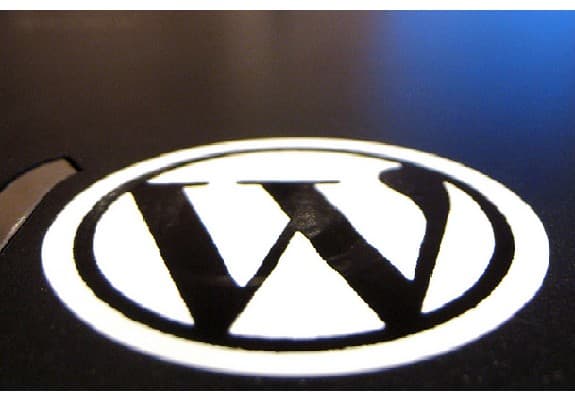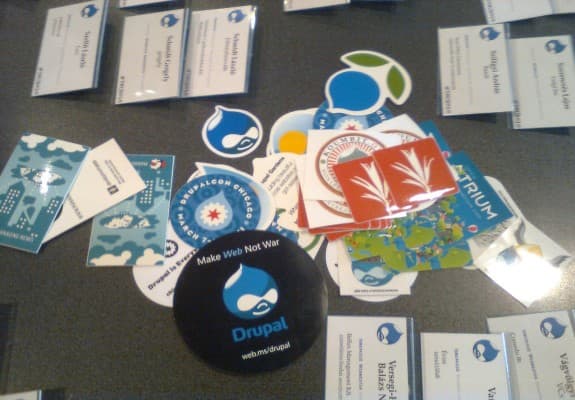WordPress vs Drupal: Which CMS is the better choice?

A Content Management System is the framework that aids in the creation and maintenance of websites. There are different kinds of CMS in the world, like WordPress, Drupal, Joomla etc. Some of these systems are very easy to download, others need professional level approach and upgrade, and some others require extensive work and diligence to keep them current and updated.
In this article, we will be discussing about two of the most popular ones in the CMS series – WordPress and Drupal, and which would be a better choice for what. Both are well-established in the market, and command a lion’s share, and both small enterprises and large organizations (companies above $10B revenue mark) rely on them.
1) The benefits of having a good content management system in your website
No matter what you run, it could be a website, a blog or a web application, having a content management system heralding it would definitely bring maximum exposure and visibility. The biggest benefit of a CMS is that you can run it yourself, even if you are not technically inclined. You can streaming scheduling, allow multiple users and perform simple design changes yourself. You are in control of what your website carries, because you can streamline the scheduling part and you can manage the content.
With a CMS in your hand, you don’t have to be a developer to built a website. Of course, you need technical assistance to build the website, but you can manage the CMS on your own.
WordPress
WP is easily one of the most popular CMS in the world, and is powered by PHP, HTML, JavaScript, AJAX, CSS and a truckload of plugins, themes, and widgets. The principal technology is PHP, powered by an SQL database in the background. Matt Mullenweg and Mike Little founded WordPress in May 2003.
Since then it has evolved to be one of the largest self-hosted blogging tool that thousands of companies rely on. That’s why it is already used on millions of sitesand visited by tens of millions of people daily. The possibilities open before you through WP is endless, thanks to the huge number of plugins it comes with.
Drupal
Drupal is the next popular CMS on the place, and it has evolved to be the clear choice for several industry verticals including government organisations and the education sector. It helps to create complex websitesand the features and functionalities enjoyed by programmers make it possible for them to come up with customisable websites. It is extremely powerful,and is often the first choice for building backend solutions. There are excellent building tools and templates so you don’t have to start from scratch when you are building a new site.
Now to the actual question – which to choose when you need one of them
2) User friendliness
Undoubtedly, it is the user-friendliness factor that is the major selling point. By being user-friendly, you don’t need to have great coding skills to host a website. So if you fall in the beginner category, you don’t have to bother learning the nuances of coding.
WP
It goes without saying that this CMS fares much better than its competitor in matters of user-friendliness. It is its strongest selling point because you can just install it within 5 minutes, with simple mouse clicks to make it work. The user interface is extremely simple to understand that you can feel your way around easily. You can easily update your own site, which is an important factor in terms of security. The content creation part is also simple because you can just create posts and publish it. Additionally, you can embed content from other places and bring it to WP by a simple copy-paste method. If you need complex layouts, then you can use the page builders and graphic interface instead of coding. People with absolutely no coding experience can update their website as and when required. So once the site is up, you can just hand it over to your client.
DP (Drupal)

DP is far more technically advanced; it means you need to have working knowledge of PHP, HTML and other programming languages to build, update and make changes to your website. The learning curve is pretty steep, making it slightly difficult for beginners. So if you are making a site on DP, you cannot just hand it over to your client so they can update it.
3) Site performance
Having a wonderful design is good; having awesome features is good too; and having mind-blowing content is extremely good. But what happens when the website takes ages to load? The user leaves it for a site that loads faster. So it is imperative to choose a platform that will make your site load faster.
WP
Site performance is one of the web spots of this platform. And perhaps that makes it the least scalable of all similar platforms in its league. True, WP can power large scale websites, but the loading part might take a sub-second longer. This is probably because the platform’s focus is on backward compatibility and it’s decision to support older versions.
DP
DP is the answer if you want fast-loading websites. It can handle thousands of pages, is less resource intensive and is less demanding on the server. The platform can be scaled to cater to the interests of thousands of visitors at a single time.
4) Customisation of site
Customisation of websites is very important because you have to deal with a huge user-base with varying interests and needs. It is important that the site has to be scalable and modified as time goes by and people’s interests vary.
WP
Incredible options are available for users looking to make changes in their website from time to time. There are built-in options that would help with design and functionality changes. You can change the colour scheme. Background images, put in custom menus, widgets, header images and change the site’s layout. There is a huge repository of plugins and themes available for you to add new functionalities to make your site more appealing. Apart from the free plugins and themes, you can also down the premium ones.
DP
If you are a developer, you will have a field day with the options offered through Drupal. You can easily build custom websites, thanks to the multitude of built-in customisation options, for example, the ability to edit files directly. With DP, there is nothing you won’t be able to customise. There are more than 4000 modules, and 2600 themes to add design updates and new functionalities to your website. The enforced coding standards, makes it possible for them to work together.
However, that is not the case with WP which might require more technical installations for plugins and extensions.
Conclusion
By looking at the above-mentioned aspects, we hope you have been able to reach a better decision on which platform to choose for your requirement.
Interesting Articles:
Pros and Cons of WordPress and Drupal
Comparison of both CMS
Pictures: Flickr.com/ Titanas/ nyuhuhuu

The author: Reema Oamkumar is engaged as a thought leader at www.Software-Developer-India.com which is a part of the YUHIRO Group. YUHIRO is a German-Indian enterprise which provides programmers to IT companies, agencies and IT departments.
Leave a Reply